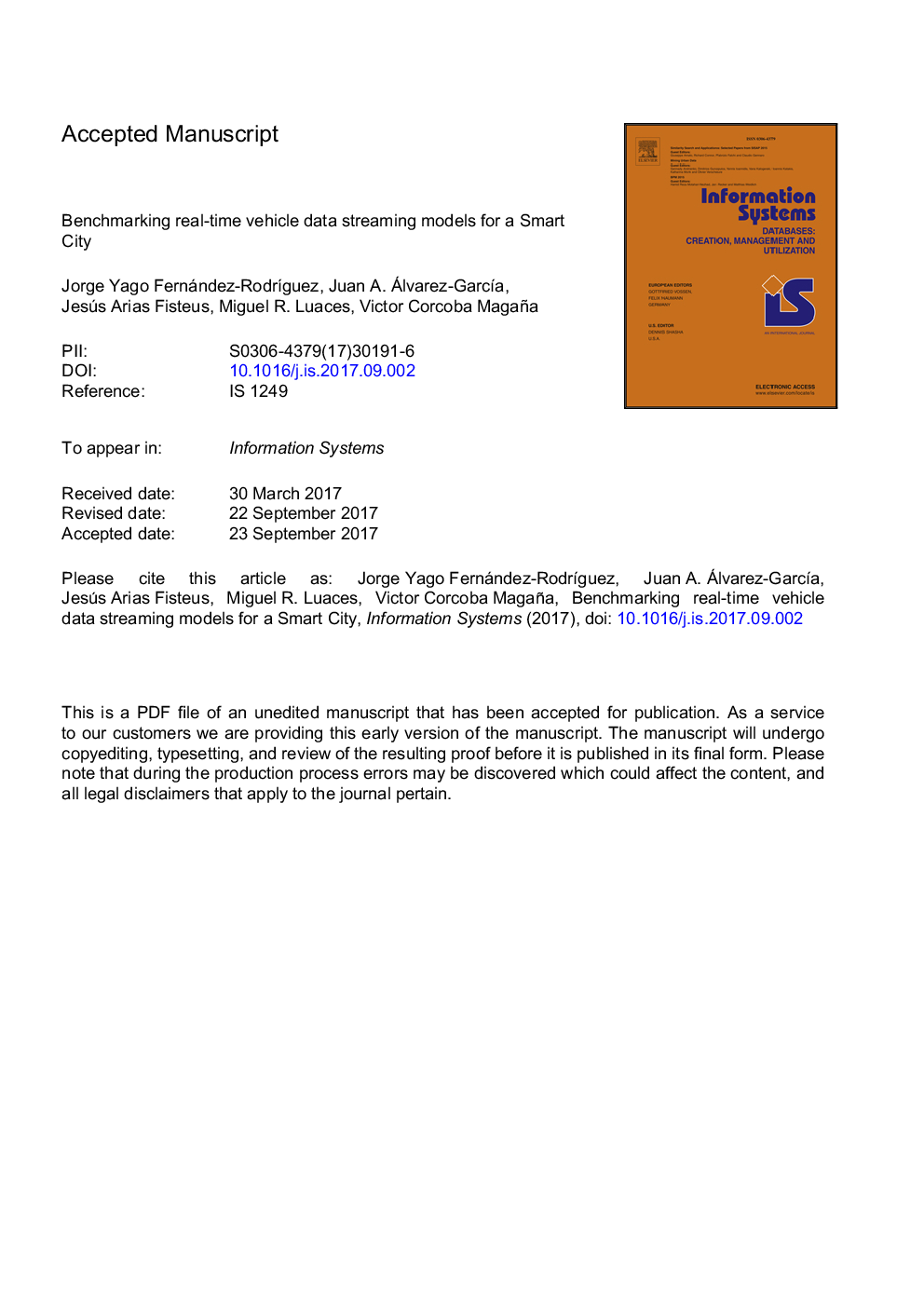ترجمه فارسی عنوان مقاله
مدل های جریان داده های خودرو در زمان واقعی برای یک شهر هوشمند
عنوان انگلیسی
Benchmarking real-time vehicle data streaming models for a smart city
| کد مقاله | سال انتشار | تعداد صفحات مقاله انگلیسی |
|---|---|---|
| 148180 | 2017 | 29 صفحه PDF |
منبع

Publisher : Elsevier - Science Direct (الزویر - ساینس دایرکت)
Journal : Information Systems, Volume 72, December 2017, Pages 62-76
ترجمه کلمات کلیدی
شهر هوشمند، جریان اطلاعات اطلاعات بزرگ، سیستم های توزیع شده، شبیه ساز
کلمات کلیدی انگلیسی
Smart city; Data streaming; Big Data; Distributed systems; Simulator;
ترجمه چکیده
سیستم های اطلاعاتی شهرهای هوشمند، توسعه دهندگان پروژه ها، موسسات، صنعت و کارشناسان را قادر می سازد که از اطلاعات متنوعی از منابع اطلاعات متنوع برای رسیدگی به خدمات اطلاعاتی جدید برای شهروندان استفاده کنند. بسیاری از این اطلاعات باید پردازش شود، زیرا آن را می گیرد، زیرا پاسخ زمان واقعی اغلب مورد نیاز است. معماری پردازش جریان، این نوع مشکلات را حل می کند، اما گاهی اوقات آسان نیست که بتوان ظرفیت بارگذاری یا کارایی یک معماری پیشنهادی را ارزیابی کرد. این کار پروژه واقعی موردی را ارائه می دهد که در آن یک زیرساخت برای جمع آوری اطلاعات از رانندگان در یک شهر بزرگ مورد نیاز است، تجزیه و تحلیل این اطلاعات و ارسال توصیه های به موقع برای بهبود راندگی رانندگی و ایمنی در جاده ها. چالش این بود که خدمات توصیه شده در زمان واقعی در یک شهر با هزاران راننده همزمان با کمترین هزینه ممکن را پشتیبانی کند. علاوه بر این، به منظور برآورد توانایی یک زیرساخت برای بارگذاری، یک شبیه ساز که داده های تولید شده توسط مقدار مشخصی از درایورهای همزمان را شبیه سازی می کند، توسعه یافت. آزمایشات با شبیه ساز نشان می دهد که چگونه جریان های پردازش جریان اخیر مانند آپاچی کافکا می توانند سرورهای جریان سفارشی را در یک شهر هوشمند جایگزین کنند تا مقیاس پذیری و پاسخ سریعتری را به همراه کاهش هزینه ها به دست آورند.

